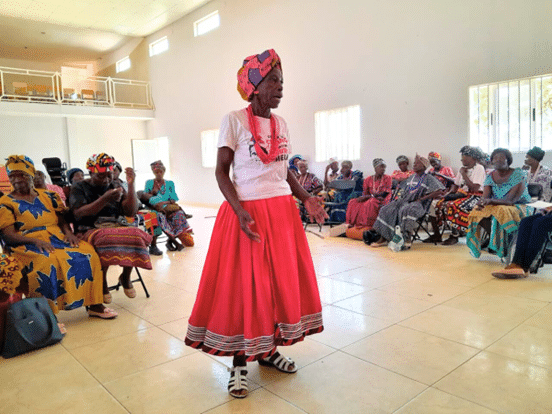Before nurses and midwives begin practicing, they are required to have a range of clinical competencies to achieve licensure. In Ethiopia, opportunities for clinical learning for nurses, however, have been limited, due to a shortage of facilities, and the challenge of providing access to rural teaching sites where there is a high prevalence of malaria, tuberculosis, and HIV.
In 2013, ICAP, through the Nursing Education and Partnership Initiative (NEPI), began partnering with the Ministry of Health and three higher learning institutions—Addis Ababa University, University of Gondar, and Arba Minch College of Health Sciences—to strengthen community health practice for students by expanding skills training to rural teaching sites.
In partnership with the MOH, ICAP is providing technical assistance and support to educational institutions to establish rural field community health practices by working with regional and district health offices to assess rural facilities. ICAP also trained rural nurses as preceptors so they could provide support to nursing and midwifery students.
Under the guidance of clinical instructors, nursing students rotate and practice at various units within health facilities. They gain key skills in patient assessment and diagnosis, health plan development, maternal and child health, and prevention and treatment of HIV/AIDS and also participate in outreach programs, conducting home visits in the community.
“My tutors were with me all the time, the equipment and supplies were sufficiently available, and we had enough opportunities to practice at clinics and in communities,” said Etenesh Woldesemaiat, a nursing student at Arba Minch College of Health Sciences.
ICAP also supported University of Gondar’s effort to broaden student training by providing transportation for students to reach the remote Gidole District Hospital, one of the rural nursing and midwifery facilities, nearly 50 kilometers from Gondar and serving a rural community of 60,000.
“We practiced in real clinical settings and got substantial experience at the affiliated rural health facilities,” said Yeshiwas Ayal, a fourth- year midwifery student at University of Gondar. “After my placement, I felt competent.”
Over the last two years, 1,141 students, faculty, and clinical instructors have participated in the rural attachment placements. University of Gondar expanded the rural teaching sites from three to five and Arba Minch College of Health Sciences expanded from 13 to 27 sites.
“In Ethiopia, where nurses and midwives are heavily concentrated in urban areas, these rural attachments students train in under-served communities, where health care services are needed most,” said Dr. Lyn Middleton, ICAP’s NEPI regional director. “These students get critical exposure to malaria and HIV patients, graduating with hands-on experience in prevention, care and treatment.”








